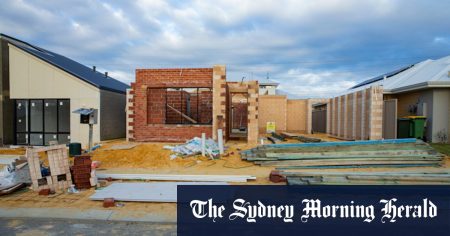Sam Keast, a young New Zealander, tragically died by suicide in his Melbourne factory just two months after relocating for a dream job with Playground Centre Limited. His death has ignited a complex investigation involving WorkSafe Victoria and the Victorian Coroner, raising concerns about workplace conditions, religious influence, and legal loopholes. Keast’s family alleges that excessive work hours, lack of promised training and support, and financial strain contributed to his despair. The company’s affiliation with the Plymouth Brethren Christian Church, a religious sect known for its strict separation from worldly institutions including unions, adds another layer to the tragedy.
Keast, described as a creative and personable individual, was passionate about his work building playground equipment. He saw it as an artistic pursuit that benefited children. His employment contract with Playground Centre, which purported to uphold high moral standards, also stipulated adherence to the brethren’s dress code and restrictions on radio use, reflecting the sect’s conservative beliefs. However, beneath this veneer of piety, Keast’s family claims, lay an exploitative work environment where he was overworked, underpaid, and denied basic entitlements like overtime and proper training. His pleas for assistance were allegedly ignored, leaving him feeling isolated and vulnerable.
The Plymouth Brethren’s influence on Playground Centre’s workplace practices is a key element of the investigation. The sect holds a legal exemption in New Zealand that allows it to bar union representatives from its workplaces, a provision not afforded to other businesses in Australia. Keast confided in his sister that he was fearful of seeking union assistance due to the risk of immediate dismissal. This fear, coupled with the alleged lack of support from the company, created a sense of helplessness and desperation in the young man. The investigation will scrutinize whether this legal loophole contributed to the tragic outcome.
Keast’s relocation to Australia was presented as a significant promotion. He was appointed Operations Manager, responsible for setting up and running the Melbourne factory, liaising with clients, and managing all aspects of production and delivery. However, his family argues that the promised pay rise, training, and accommodation never materialized. He was left to shoulder the burden of a multifaceted role without adequate support, training, or financial resources. The coroner will examine whether the company’s failure to fulfill its promises and provide adequate resources created an unsustainable workload that contributed to Keast’s distress.
The investigation is further complicated by the company’s response, or lack thereof, following Keast’s death. The family alleges a callous and dismissive attitude, with little to no expression of sympathy or concern. Furthermore, the company initially resisted WorkSafe’s involvement, and subsequently provided minimal information to investigators, leaving many questions unanswered. This lack of transparency has fueled the family’s suspicion and determination to uncover the truth about the circumstances surrounding Keast’s death.
Keast’s family, now grappling with grief and trauma, is determined to prevent similar tragedies from occurring. They are advocating for greater scrutiny of workplace practices, particularly within organizations operating under religious exemptions, and for stronger protections for vulnerable workers. The investigation into Keast’s death serves as a somber reminder of the potential consequences of unchecked workplace pressures and the urgent need for accessible and effective support systems for employees facing mental health challenges. The ongoing legal proceedings will hopefully provide some closure for the family and shed light on the systemic issues that may have contributed to this tragic loss.










